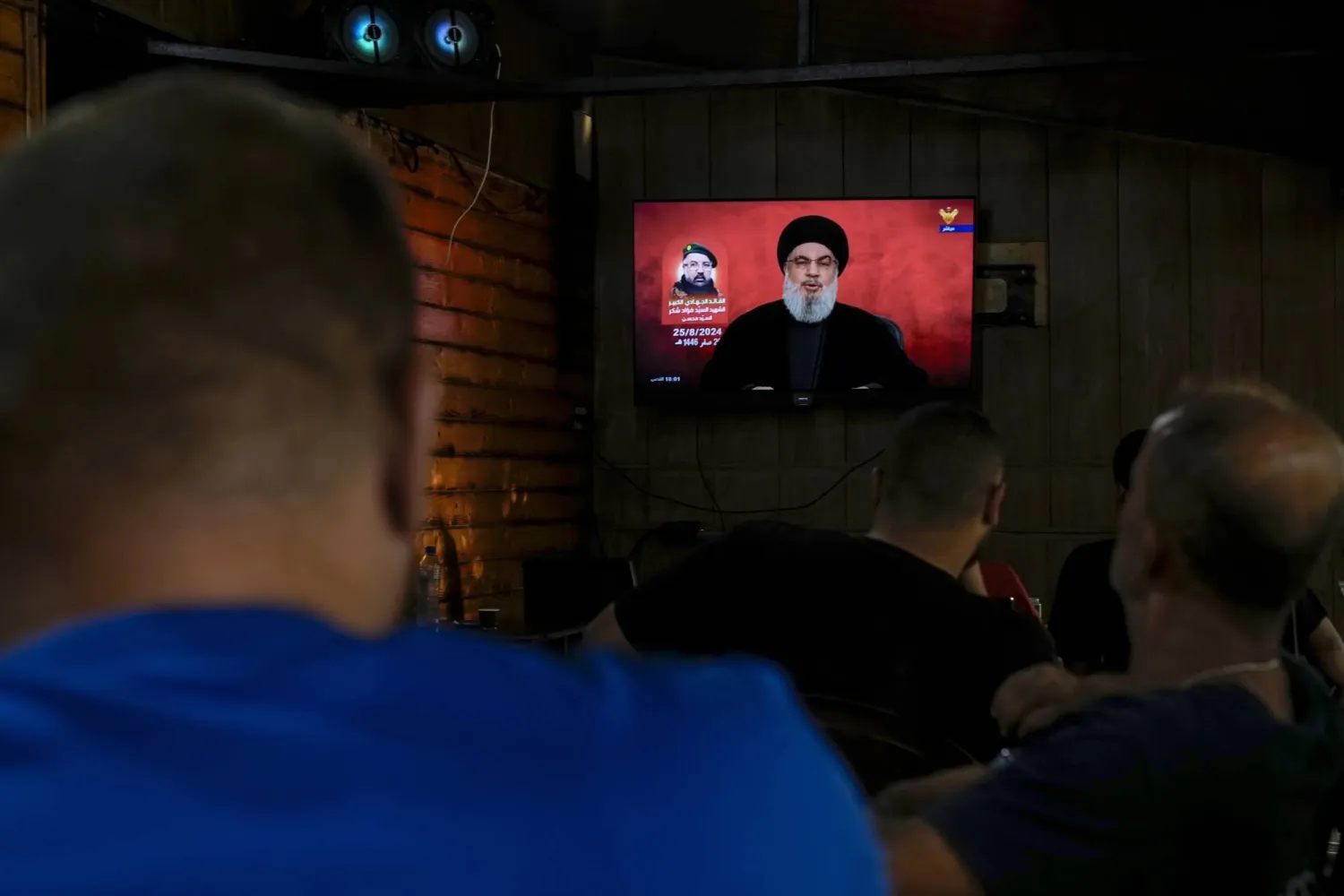Hezbollah chief Hassan Nasrallah said his group's attack on Israel on Sunday targeted a military intelligence base near Tel Aviv around 100 kilometers from the Israeli-Lebanese border.
The "main target for the operation" inside Israel was "the Glilot base -- the main Israeli military intelligence base,” Nasrallah said in a televised speech.
Israel launched a wave of airstrikes across southern Lebanon early Sunday in what it called a preemptive strike to avert a large Hezbollah rocket and missile attack. The group said it fired hundreds of rockets and drones to avenge the killing of a top commander last month.
Nasrallah denied statements by the Israeli military that its pre-emptive strikes had stopped a wider attack by the group.
Israel's military said one soldier with the navy was killed and two others were wounded either by an interceptor for incoming fire, or by shrapnel from one. Two Hezbollah fighters and a militant from Amal movement were killed, the groups said.
Hezbollah called its attack on Israeli military positions an initial response to the killing of Fouad Shukur in an Israeli airstrike in Beirut last month. Nasrallah said assaults on Israel will continue “because there is still the response of (allies) Iran and Yemen.”
Nasrallah said Hezbollah had not planned a larger attack, specifically denying Israeli military statements that the group had intended to fire thousands of projectiles.
But he acknowledged that the operation had been delayed for several reasons, including what he called a "mobilization" of Israeli and American military assets in the region.









